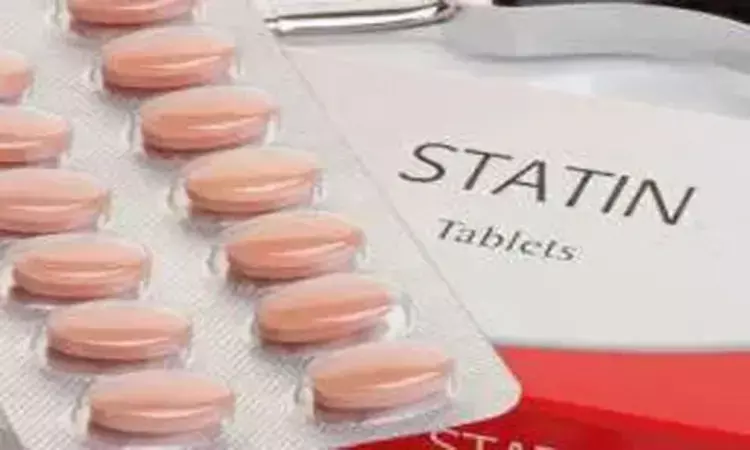- Home
- Medical news & Guidelines
- Anesthesiology
- Cardiology and CTVS
- Critical Care
- Dentistry
- Dermatology
- Diabetes and Endocrinology
- ENT
- Gastroenterology
- Medicine
- Nephrology
- Neurology
- Obstretics-Gynaecology
- Oncology
- Ophthalmology
- Orthopaedics
- Pediatrics-Neonatology
- Psychiatry
- Pulmonology
- Radiology
- Surgery
- Urology
- Laboratory Medicine
- Diet
- Nursing
- Paramedical
- Physiotherapy
- Health news
- Fact Check
- Bone Health Fact Check
- Brain Health Fact Check
- Cancer Related Fact Check
- Child Care Fact Check
- Dental and oral health fact check
- Diabetes and metabolic health fact check
- Diet and Nutrition Fact Check
- Eye and ENT Care Fact Check
- Fitness fact check
- Gut health fact check
- Heart health fact check
- Kidney health fact check
- Medical education fact check
- Men's health fact check
- Respiratory fact check
- Skin and hair care fact check
- Vaccine and Immunization fact check
- Women's health fact check
- AYUSH
- State News
- Andaman and Nicobar Islands
- Andhra Pradesh
- Arunachal Pradesh
- Assam
- Bihar
- Chandigarh
- Chattisgarh
- Dadra and Nagar Haveli
- Daman and Diu
- Delhi
- Goa
- Gujarat
- Haryana
- Himachal Pradesh
- Jammu & Kashmir
- Jharkhand
- Karnataka
- Kerala
- Ladakh
- Lakshadweep
- Madhya Pradesh
- Maharashtra
- Manipur
- Meghalaya
- Mizoram
- Nagaland
- Odisha
- Puducherry
- Punjab
- Rajasthan
- Sikkim
- Tamil Nadu
- Telangana
- Tripura
- Uttar Pradesh
- Uttrakhand
- West Bengal
- Medical Education
- Industry
Correction of hypothyroidism and vitamin D insufficiency improves statin tolerance, claims study

USA: Statin tolerance may be improved by either correcting vitamin D insufficiency/deficiency and/or subclinical hypothyroidism or changing from a lipophilic statin to water-soluble statin (or lipophilic statin with minimal systemic exposure), a recent study has found. The study was published in the journal High Blood Pressure & Cardiovascular Prevention.
Globally, atherosclerotic cardiovascular disease (ASCVD) is the leading cause of mortality and morbidity. Statins are medications that are used for primary and secondary prevention of ASCVD. Intolerance due to statin-associated myalgias decreases long-term adherence, thus muting potential benefits.
Considering the above, Robert Solomon, Division of Cardiology, Ascension St. John Hospital, Detroit, Michigan, United States, and colleagues aimed to determine whether a transition from a lipophilic statin to a water-soluble statin or correction of subclinical hypothyroidism and vitamin D insufficiency/deficiency (metabolic abnormalities) betters statin tolerance.
For this purpose, the authors did a retrospective analysis of the data from patients suffering from statin intolerance. Patients intolerant to a lipophilic statin were changed to a water-soluble statin. Patients with a vitamin D insufficiency/deficiency or subclinical hypothyroidism were re-challenged with a water-soluble statin (or lipophilic statin with minimal systemic exposure) following correction of the metabolic abnormality.
The study led to the following findings:
- One hundred sixty-nine patients were statin intolerant. 86% (n = 145) were white and 48% (n = 81) were male. Eighty-two of these patients had one or both metabolic abnormalities. The remaining patients (n = 87) had no metabolic abnormality, however, they could not tolerate a lipophilic statin.
- 72% (n = 73) of eligible patients (n = 101), defined as those with a corrected metabolic abnormality or without a metabolic exception on a lipophilic statin, were able to tolerate a water-soluble statin or lipophilic statin with minimal systemic exposure.
- 75% (n = 127) of this total cohort met their LDL-C goal.
"Our findings suggest either correction of vitamin D insufficiency/deficiency and/or subclinical hypothyroidism or a change from a lipophilic statin to water-soluble statin (or lipophilic statin with minimal systemic exposure) improves statin tolerance," the researchers conclude.
Reference:
Solomon, R., Anne, P., Swisher, J. et al. Evaluating Statin Tolerability in Historically Intolerant Patients After Correcting Subclinical Hypothyroidism and Vitamin D Insufficiency. High Blood Press Cardiovasc Prev (2022). https://doi.org/10.1007/s40292-022-00537-2
Dr Kamal Kant Kohli-MBBS, DTCD- a chest specialist with more than 30 years of practice and a flair for writing clinical articles, Dr Kamal Kant Kohli joined Medical Dialogues as a Chief Editor of Medical News. Besides writing articles, as an editor, he proofreads and verifies all the medical content published on Medical Dialogues including those coming from journals, studies,medical conferences,guidelines etc. Email: drkohli@medicaldialogues.in. Contact no. 011-43720751


